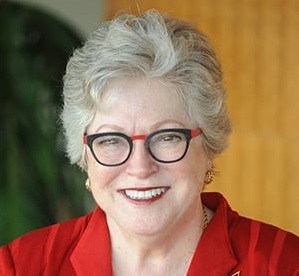 In preparation for an upcoming doctor of ministry seminar, I have been reading material on theology and spirituality for leadership. My teaching partner and I decided to change textbooks this time around (we’ll see how smart that was), so I have devoted myself to mining their insights. The task has primarily been to understand more fully what time this is for the church and what kind of leadership it most needs. Deeply spiritual perceptions are emerging that call for contemplative practices suitable for wilderness journeys.
In preparation for an upcoming doctor of ministry seminar, I have been reading material on theology and spirituality for leadership. My teaching partner and I decided to change textbooks this time around (we’ll see how smart that was), so I have devoted myself to mining their insights. The task has primarily been to understand more fully what time this is for the church and what kind of leadership it most needs. Deeply spiritual perceptions are emerging that call for contemplative practices suitable for wilderness journeys.
“(Americans) have lost confidence in institutions. This is the ethos churches inhabit.”
Persons who study congregational life tell us that this is a liminal time as faith communities cross a threshold into a time when participation in church is less compelling. The statistics are startling, and we are coming to grips with generational shifts, egregious political compromises and a fraying sense of community. Bill Wilson of the Center for Healthy Churches (and a fellow BNG columnist) has observed that one in four churches in the United States will close in the next dozen years, adding that this forecast may be optimistic.
Those of us who populate the pews on Sunday notice attendance is growing thinner, and we wonder if our congregation will be sustainable. Facilities consume too much of our budgets, and most churches must wrestle with fewer fulltime ministers and fewer mission dollars.
Individualism and personal preferences shape so much of our lives, and the loss of corporate identity is startling. The New York Times recently published an essay by Yuval Levin titled “How Americans Lost Faith in Everything.” Levin argues that Americans are living through a social crisis because we have abandoned “a way to give shape, purpose, concrete meaning and identity to the things we do together. If American life is a big open space, it is not a space filled with individuals. It is filled with these structures of social life – with institutions.”
Simply put, we have lost confidence in institutions.
This is the ethos churches inhabit. It is ever harder for volunteers to carry out their roles in congregational life. Retired persons bear more of the load, in part because they have more discretionary time. Wise congregations are beginning to restructure committees and boards because they are proving unwieldy amid increasingly fewer human resources.
Nevertheless, churches are being called to renewal, to a “deeper yes” to the commitment to be on mission for the sake of the world. Greater clarity about identity fuels focus in our life together. We are beginning to measure what really matters, such as redemptive outcomes in the lives of hurting people.
Hopeful perspectives are still present, and new thinking about leadership is constructive. Rather than seeing the decline in church participation as a problem to be solved (which suggests that we know exactly what the problem is), leadership takes on a different style of creative exploration and iterative innovation. It returns to a radical dependence upon the leadership of God through the wilderness.
“A liminal time invites trust and faith like never before.”
In her fine book, How to Lead When You Don’t Know Where You’re Going, Susan Beaumont discusses three shifts for leadership in this time. The leader moves from knowing to unknowing, becoming suspicious of prior thinking; the leader moves from advocating to attending, which suggests that deep seeing and listening shifts spiritual perspective; and the leader moves from striving to surrender. In Beaumont’s words, this last move “means accepting the past for what it was, embracing the present reality, yielding to the mystery of the future and the mystery of God in that future.”
The life of Moses illustrates the kind of unknowing that is an essential part of leading. It takes many mistakes, some anger management and much deep listening for Moses to become God’s liberating instrument. He had his challenges: no GPS, just a pillar of fire and a cloud; no Grub Hub, just a rather boring diet of manna and quail – at least for a season.
He was in the wilderness for the full span of a generation, 40 years. As Gregory of Nyssa writes in his Life of Moses, just when Moses believed he had scaled the heights, another range of mountains rises before him. His life left a lasting imprint on the life of the covenant people – just as four decades in the wilderness is later described as the time when the relationship with God was most intimate.
Paul picks up images of Christ journeying with the sojourning people, and he makes the case that Moses presages the later understanding of baptism (through the sea); eucharist (through the provision of manna); and understanding ongoing spiritual sustenance through “the rock that was Christ.” The Apostle also warns that wilderness is a dangerous place, and many will not persevere.
Dan Aleshire, my former Southern Seminary colleague and longtime executive director of the Association of Theological Schools, once remarked that “good leaders never make it to the promised land.” By this, I surmise that good leaders always know there is more to do, more to learn and more pilgrimage to make.
A liminal time invites trust and faith like never before. Today is that time.
